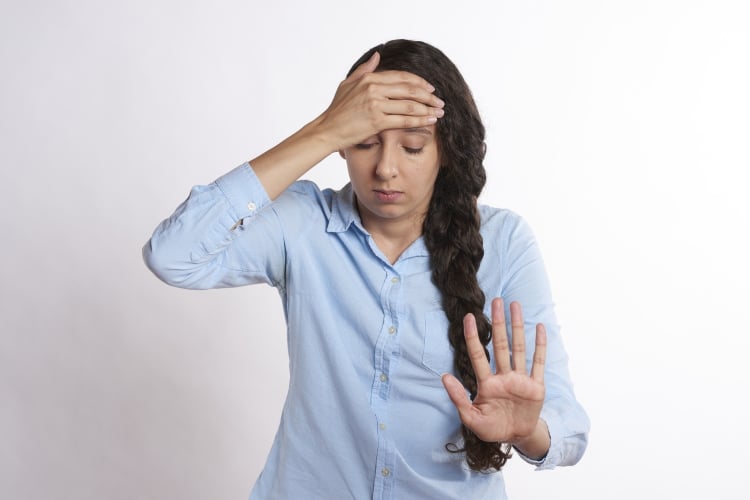
14 Highly Effective Ways to Naturally Eliminate Chronic Headaches from Your Life
Hemicrania continua is a rare type of chronic daily headache. The pain occurs on one side of the head and varies in intensity without ever disappearing completely. The pain is usually moderate but may include jolts of severe pain that last less than a minute. The flare-ups of severe pain may be accompanied by tearing or redness of the eye on the affected side, swelling or drooping of the eyelid, and a stuffy or a runny nose. You may experience nausea, vomiting, and sensitivity to noise and light. Sometimes auras — such as blind spots or flashing lights in your visual field or sensations of numbness or tingling — are present as well.
In the episodic form of hemicrania continua, periods — usually months — with daily headaches alternate with periods with no headaches. In the chronic form, headaches occur daily with little or no break, sometimes for years.
Table of Contents
Causes
- Medication overuse
- Abnormal response of the brain to stimulation, such as muscle tension or tissue inflammation
- Abnormal function of brain structures that suppress pain
- Changes in the nervous system due to frequent headaches
- Stimulation of the central nervous system due to stress, infection or trauma
- Genetic predisposition to increased pain sensitivity
- Injury to or painful stimulation of the upper spine
Different diseases or conditions may cause secondary chronic daily headaches, such as:
- Inflammation of the arteries (giant cell arteritis)
- Inflammation of the blood vessels (vasculitis)
- A new, abnormal formation of tissue (neoplasm)
- Infection
- Sleep disorders (such as obstructive sleep apnea)
Diagnosis
The doctor will ask a series of questions about your headaches, including when they started and what they feel like. Be sure to list all the medications you are taking, including the doses. Your doctor will probably do a physical exam to check for signs of illness, infection or neurological problems. If the cause of your headaches remains uncertain, you may need blood or urine tests to identify any underlying medical conditions. Sometimes imaging studies — such as an X-ray, computerized tomography or magnetic resonance imaging — are recommended.
Treatment
Treatment for any underlying diseases or conditions often stops chronic daily headaches. When no underlying diseases or conditions are present, treatment focuses on stopping the pain before it starts. Specific prevention strategies vary, depending on which type of headache you have and on whether medication overuse is contributing to these headaches. If you are taking pain relievers more than two days a week, the first step in treatment may be to stop using these drugs. When you are ready to begin preventive therapy, your doctor may recommend:
Antidepressants
- Beta-blockers: These drugs, commonly used to treat high blood pressure, are also a mainstay for preventing episodic migraines.
- Anti-seizure medications: Some anti-seizure drugs seem to prevent migraines. Now, these medications may be used to prevent chronic daily headaches as well. Options may include Divalproex (Depakote), gabapentin (Neurontin) and topiramate (Topamax).
- Muscle relaxants.
- NSAIDs: Nonsteroidal anti-inflammatory drugs
Unfortunately, some chronic daily headaches remain resistant to medications.
Prevention
Taking good care of yourself can help prevent chronic daily headaches.
- Avoid potential causes. If you are not sure what causes your headaches, keep a headache journal. Include details about every headache. When did it start? What were you doing at the time? What did you eat that day? How did you sleep the night before? What is your stress level? How long did a headache last? What, if anything, provided relief? You may see a relationship and then you may be able to prevent future headaches.
- Get enough sleep: Go to bed and wake up at the same time every day and even on weekends. If you are not tired at bedtime, read or watch television until you become sleepy.
- Do not skip meals: Start your day with a healthy breakfast. Eat lunch and dinner at about the same time every day. Avoid any foods that seem to trigger headaches.
- Exercise: Exercise causes your body to release chemicals that block pain signals to your brain. Choose exercises you will get pleasure from such as walking, jogging, swimming or biking. Remember to start slow.
- Decrease the stress in your life: Become more organization. Organization in your life will reduce stress. Do not try to do too much at once. Take it one day at a time and be positive. Positive thinking is effective.
- Relax: Take some me time.
- Stop smoking: Smoking can cause headaches or make them worse even chronic.
Other treatment
Acupuncture: This ancient technique uses hair-thin needles to promote the release of natural painkillers and other chemicals in the central nervous system. There is some evidence that it can help control headaches and other conditions that cause chronic pain.
Biofeedback: With this relaxation technique, you can learn to control headaches by producing changes in bodily responses such as muscle tension, heart rate, and skin temperature. Hypnosis: During a hypnosis session, a trained hypnotist might suggest ways to decrease your perception of pain and increase your ability to cope with it — such as visualizing a calm, safe place when a headache strikes.
Meditation: During meditation, you focus on a simple activity, such as breathing or repeating a single word or phrase. The practice creates a deeply restful state in which your breathing slows and your muscles relax — which can help you manage pain and reduce the stress that can cause or worsen a headache.
Massage: Massage can reduce stress, relieve tension and promote relaxation. Although its value as a headache treatment has not been determined, massage may be particularly helpful if you have tight, tender muscles in the back of your head, neck, and shoulders.
Herbs, vitamins, and minerals: Some dietary supplements — including magnesium, feverfew, and butterbur — seem to help prevent or relieve some types of headaches, but there is little scientific support for these claims. If you are considering using supplements to treat headaches, check with your doctor. Some supplements may interfere with the effectiveness of prescription or over-the-counter drugs or have other harmful effects.
Chiropractic care: Spinal manipulation can effectively treat some types of pain, but studies do not support claims that chiropractic care relieves headaches. Chiropractic manipulation of the neck has been associated with injury to the blood vessels supplying the brain. Rarely, this may cause a stroke. If you would like to try a complementary or alternative therapy, discuss the risks and benefits with your doctor.






